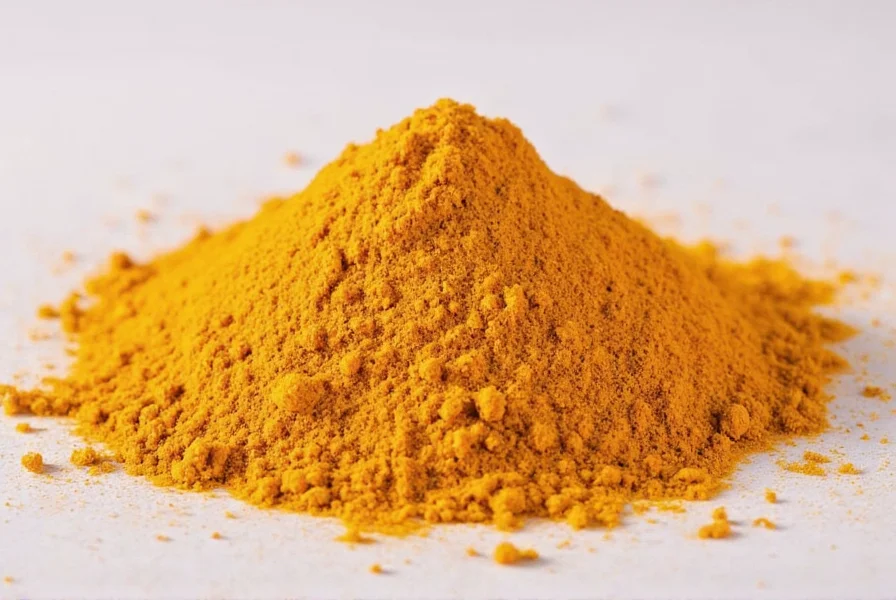Curcumin, the primary bioactive compound in turmeric, has gained significant attention for its potential health benefits. However, understanding turmeric side effects on heart function is crucial for individuals with cardiovascular concerns. Research shows that while moderate turmeric consumption typically poses minimal risk, specific heart-related complications can occur under certain conditions.
How Turmeric Interacts With Cardiovascular System
Turmeric influences several physiological pathways relevant to heart health. Its anti-inflammatory and antioxidant properties may support cardiovascular function by reducing oxidative stress and inflammation, both contributors to heart disease. However, these same properties create potential turmeric interactions with heart medications that users must understand.
Studies indicate that curcumin can inhibit platelet aggregation, essentially thinning the blood. This effect becomes particularly relevant for individuals taking anticoagulant medications like warfarin. The combined effect could lead to excessive bleeding or complicate surgical procedures. Additionally, turmeric's potential to lower blood pressure means those on hypertension medications should monitor their levels carefully.
Documented Heart-Related Side Effects
While rare, several heart-related side effects have been documented in clinical studies and case reports:
| Side Effect | Reported Incidence | At-Risk Population |
|---|---|---|
| Excessive blood thinning | Low (with normal doses) | Those on anticoagulants |
| Significant blood pressure drop | Very low | Those on hypertension meds |
| Heart rhythm disturbances | Rare | Individuals with pre-existing arrhythmia |
The most significant concern regarding can turmeric affect your heart involves medication interactions rather than direct cardiac damage. A 2022 review in the Journal of Dietary Supplements noted that while turmeric shows promise for cardiovascular health, its blood-thinning properties require careful consideration when combined with conventional cardiac treatments.
Who Should Exercise Caution With Turmeric?
Certain populations should consult healthcare providers before using turmeric supplements:
- Individuals taking anticoagulant or antiplatelet medications (warfarin, aspirin, clopidogrel)
- Those managing hypertension with medication
- People scheduled for surgery within two weeks
- Individuals with pre-existing arrhythmia conditions
- Patients with congestive heart failure
For these groups, understanding turmeric side effects for heart patients is particularly important. The American Heart Association recommends discussing any supplement use with your cardiologist, especially when managing complex cardiac conditions.
Safe Usage Guidelines for Heart Health
For most healthy adults, culinary use of turmeric (about 1-3 grams daily) presents minimal risk. However, those concerned about does turmeric have side effects on heart should follow these guidelines:
- Limit supplement doses to 500-1,000 mg of curcumin daily unless directed by a healthcare provider
- Avoid turmeric supplements two weeks before scheduled surgeries
- Monitor blood pressure regularly if taking hypertension medications
- Space turmeric consumption at least 2-3 hours apart from cardiac medications
- Choose standardized extracts with piperine only under medical supervision
Research published in Frontiers in Pharmacology suggests that moderate turmeric consumption may actually support heart health by improving endothelial function. The key is understanding your personal risk factors and using turmeric appropriately within your specific health context.
When to Consult Your Healthcare Provider
Seek medical advice if you experience any of these symptoms while using turmeric supplements:
- Unexplained bruising or bleeding
- Dizziness or lightheadedness (possible blood pressure drop)
- Irregular heartbeat
- Excessive fatigue
- Chest discomfort
These could indicate serious turmeric side effects on heart function or problematic interactions with existing medications. Your healthcare provider can help determine whether turmeric is appropriate for your specific cardiovascular health profile.
Conclusion
While turmeric offers potential cardiovascular benefits through its anti-inflammatory properties, awareness of possible heart-related side effects is essential. The relationship between turmeric and heart health involves both potential benefits and risks that depend on individual health status and medication use. For most people, culinary use of turmeric presents minimal risk, but those with heart conditions or taking cardiac medications should exercise caution and consult healthcare professionals. Understanding your personal risk factors remains the most important consideration when evaluating whether turmeric might affect your heart health.
Frequently Asked Questions
Can turmeric cause heart palpitations?
While uncommon, some individuals report heart palpitations after consuming high doses of turmeric supplements. This appears more likely in sensitive individuals or when turmeric is combined with stimulants like caffeine. The exact mechanism isn't fully understood, but it may relate to turmeric's effects on blood pressure regulation. If you experience persistent palpitations, discontinue use and consult your healthcare provider.
Is turmeric safe for people with high blood pressure?
Turmeric may lower blood pressure, which could be beneficial for some hypertension patients but problematic when combined with blood pressure medications. Those managing high blood pressure should monitor their levels closely when using turmeric supplements and consult their doctor about potential interactions with their specific medication regimen.
How does turmeric interact with blood thinners?
Turmeric has natural blood-thinning properties that can enhance the effects of anticoagulant medications like warfarin, increasing bleeding risk. If you take blood thinners, consult your healthcare provider before using turmeric supplements. They may recommend avoiding high-dose supplements or adjusting your medication dosage with careful monitoring.
Can turmeric benefit heart health?
Yes, research suggests turmeric's anti-inflammatory and antioxidant properties may support heart health by improving endothelial function and reducing oxidative stress. However, these potential benefits must be weighed against possible interactions with cardiac medications. The cardiovascular effects of turmeric appear dose-dependent, with moderate culinary use generally safe while high-dose supplements require medical supervision for those with heart conditions.
How much turmeric is safe for heart patients?
For heart patients, culinary use (about 1-3 grams of turmeric powder daily) is generally considered safe. Those considering supplements should typically limit to 500-1,000 mg of curcumin daily unless specifically directed by their healthcare provider. Individual tolerance varies based on specific heart conditions and medication regimens, so personalized medical advice is essential before starting supplementation.











 浙公网安备
33010002000092号
浙公网安备
33010002000092号 浙B2-20120091-4
浙B2-20120091-4